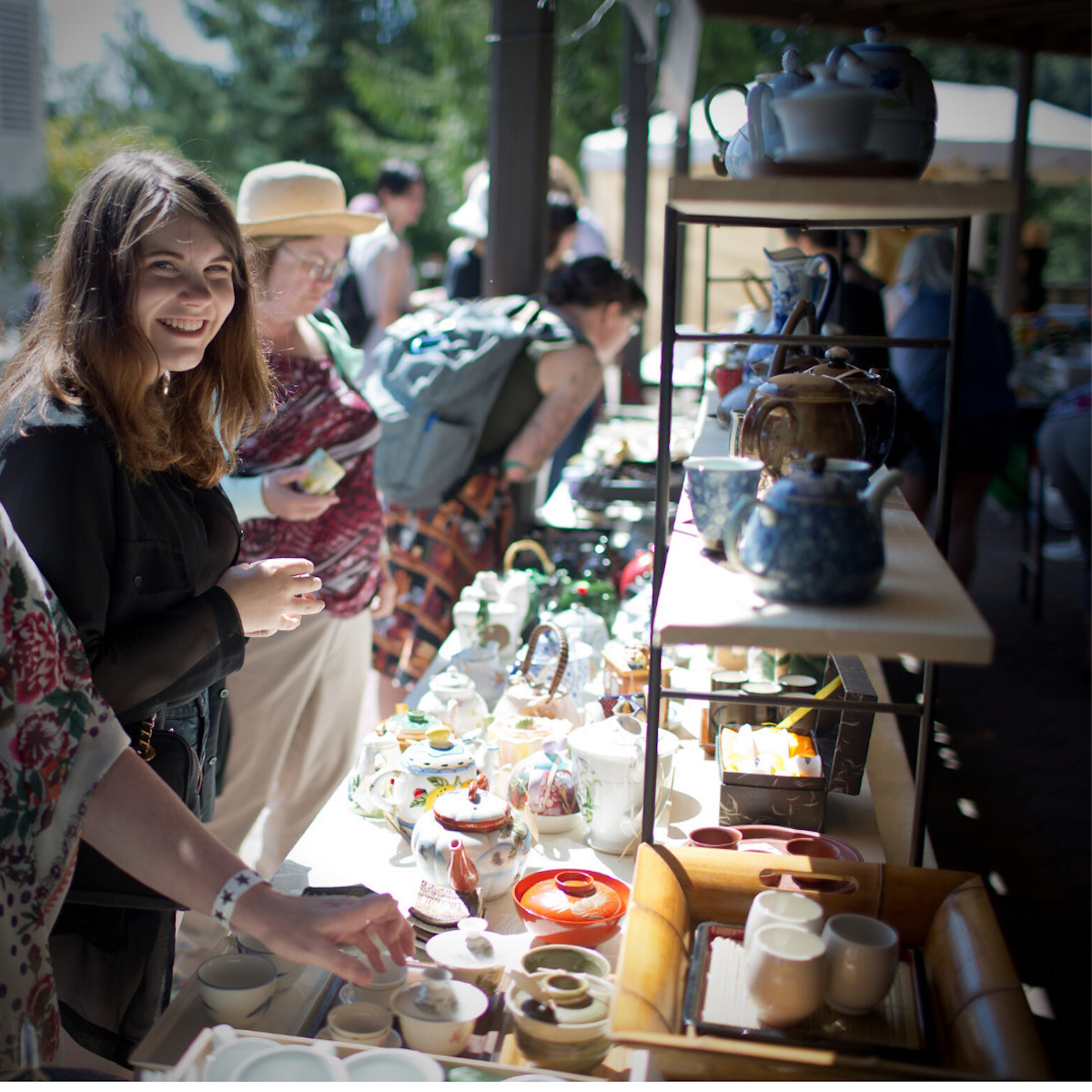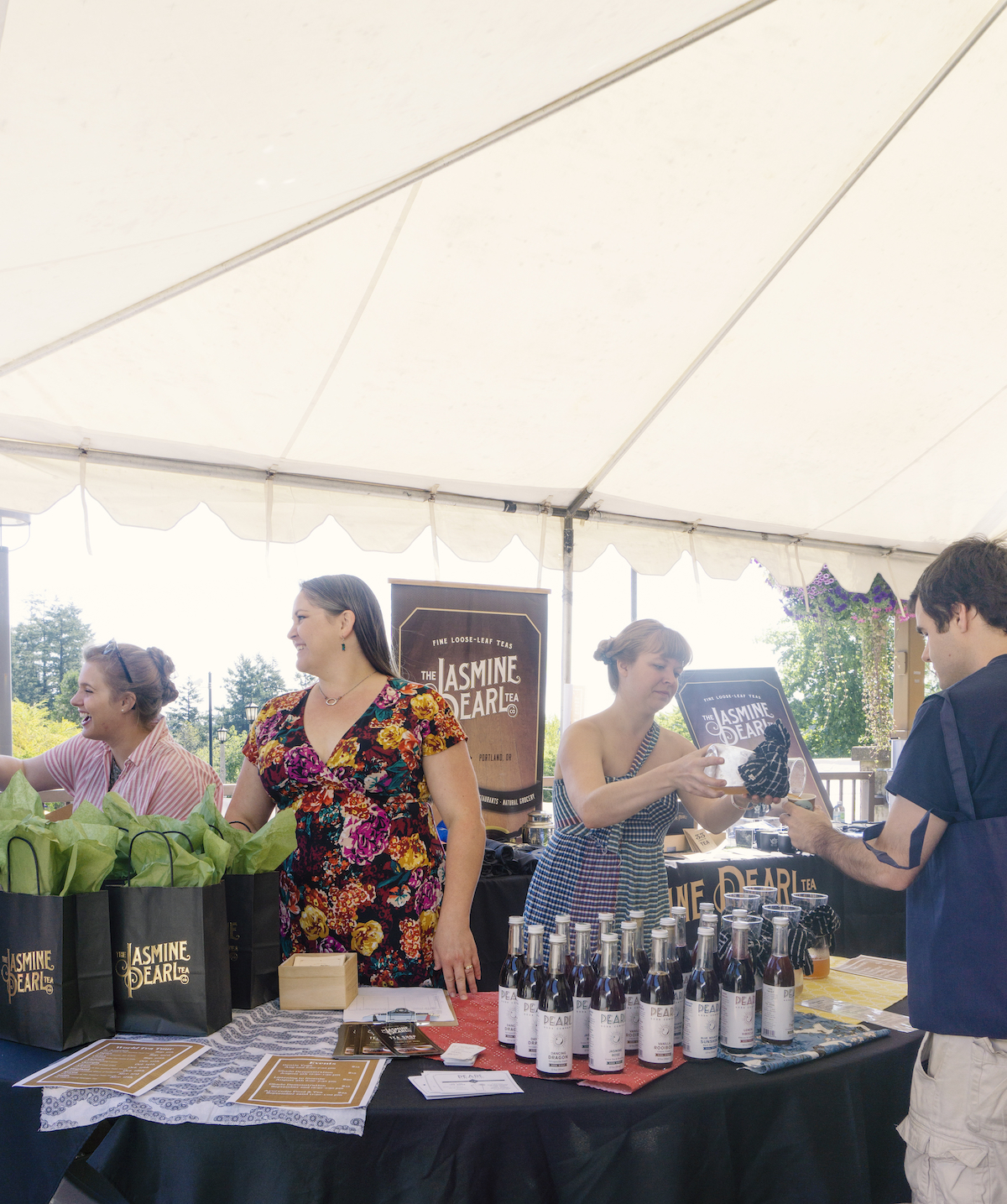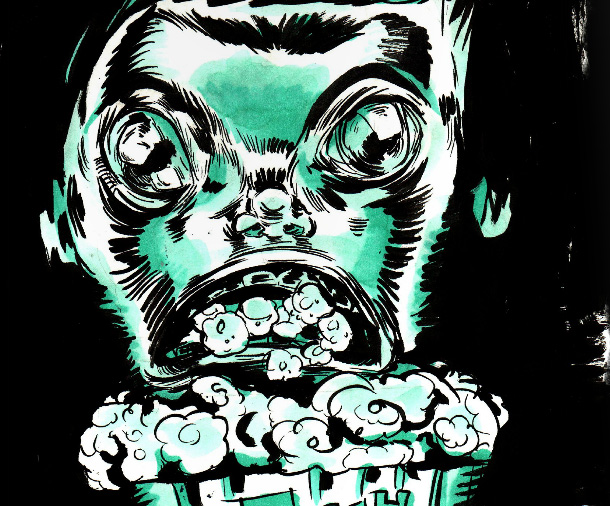For years, Portland has been known for its thriving coffee culture. Hundreds of independent cafés and roasteries pepper the city, offering the drink in every form one can imagine. While Portland’s association with coffee is justified, the city has a thriving tea culture as well—one that often receives little attention due to its main reputation for coffee.
Portland’s Teafest PDX event seeks to fix that by shining a light on the multitude of amazing regional tea vendors, spreading knowledge about craft tea through tastings and classes, and providing a space for a vast array of tea experiences. After a two year hiatus due to COVID-19, this year’s Teafest PDX festival will take place at Lewis and Clark College on July 16 from 9:30 a.m. to 6:00 p.m. to spotlight Portland’s teas.
The event started back in 2013, when Teafest’s founder first imagined a local tea festival. Jennifer Brenner—the festival’s founding director—was attending the Northwest Tea Festival in Seattle and realized how many people from Oregon would go up. “Tea vendors in Portland and lots of other people would go up to Seattle, and the Seattle people were like, ‘why don’t you try to do your own festival?’” Brenner said.
She initially wanted to start something that year, but fellow festival organizers Heather Agosta and Chuck Bauman—co-founders of Jasmine Pearl Tea Company—were too busy running a company to help make the event a reality.

Nite/Portland Tea Expo
With the festival put on hold, Brenner continued to foster a tea community by joining the Northwest Wu-Wo Association—a Taiwanese tea ceremony group—and organizing and attending events with the Portland Tea Meetup group.
She then started leading her own gatherings three to four times a month in 2015 and 2016. These events consisted of hikes into the forest to brew tea in nature, tea tastings in local tea houses and picnics at parks where everyone would bring a tea to share with the group. “Those kinds of things that were social but not based around alcohol at all, but still people coming together,” Brenner said.
Interest grew, eventually requiring waitlists for each event. Finally, it became clear that the time had come to try the festival in earnest. With Agosta and Bauman available at last, the three of them, along with help from others, organized the first festival and threw it in 2017.
The first festival was an exhilarating experience for Brenner. “It was so exciting and so nerve-racking,” she said. “We were like, ‘is anyone gonna show up to our big tea party that costs 20 thousand dollars?’”
To the relief of organizers and vendors alike, festival-goers showed up in droves. Nearly 2,000 people attended the festival, several lining up outside at 8 a.m. “It kind of knocked our socks off,” Brenner said. “It was insane.”
Brenner had previous experience in a group that organized Burning Man, but her organizer partners had never thrown an event before. Thankfully, the Seattle group gave them guidance on what worked.

Nite/Portland Tea Expo
Still, there were bound to be hiccups. “We had one big aisle down the middle with all the vendors that people called the gauntlet because it was so packed, and it was like running the gauntlet to get through it,” Brenner said.
Guests can participate in various activities at this year’s festival. The event’s primary focus is on the classes offered on tea drinking and education on different cultures’ tea ceremonies. Additionally, there’ll be tastings by local vendors, a Taiwanese-style ceremony by the Northwest Wu-Wo Association and a 10-20 minute more casual tasting space.
Beyond traditional tea tasting venues are unique tea experiences, such as a van turned into a mobile tea house or “float booths” where people can relax, drink tea and meet other festival-goers. In addition, there will be Tai Chi demonstrations and individuals in various historical period costumes adding to the experience.
“I wanted the festival to be an experience, rather than just being about just purchasing tea,” Brenner said. “Most festivals are in expo centers that are more vendor based. I wanted to create a more experiential tea festival.”
The tea offered at the festival runs the gambit. “If you can think of it, we try to offer it,” Brenner said. Just some of the varieties she named included Chinese, Japanese, Taiwanese, Indian Chai blends, British black teas, herbals, and even kombucha. “We are open to all genres and types of tea,” she said. “We aren’t tea snobs.” Although no boba will be provided this year, she expressed interest in providing it in the future.
Beyond specifics of the event, Brenner detailed why Teafest is meaningful. “For many people, it’s the highlight of their tea year and a way to see people you haven’t seen since the last festival that you have this shared interest with,” she said. “There aren’t that many events that are created around a beverage that lets you be around that type of person. It’s based very much in a nonalcoholic way for people to socialize and get together. It’s a way to engage in a community that’s not socialized around alcohol.”
Those who may not know the most about tea beyond Lipton but are curious are more than welcome to attend. “If you have any basic interest in tea, this is a great place to learn more just about what’s out there and what’s available,” Brenner said. “It’s also a chance to interact with people who are very passionate and very knowledgeable about tea. You have a chance not only to try different teas to see what you like but also to [learn] all the ways tea can be used.”






